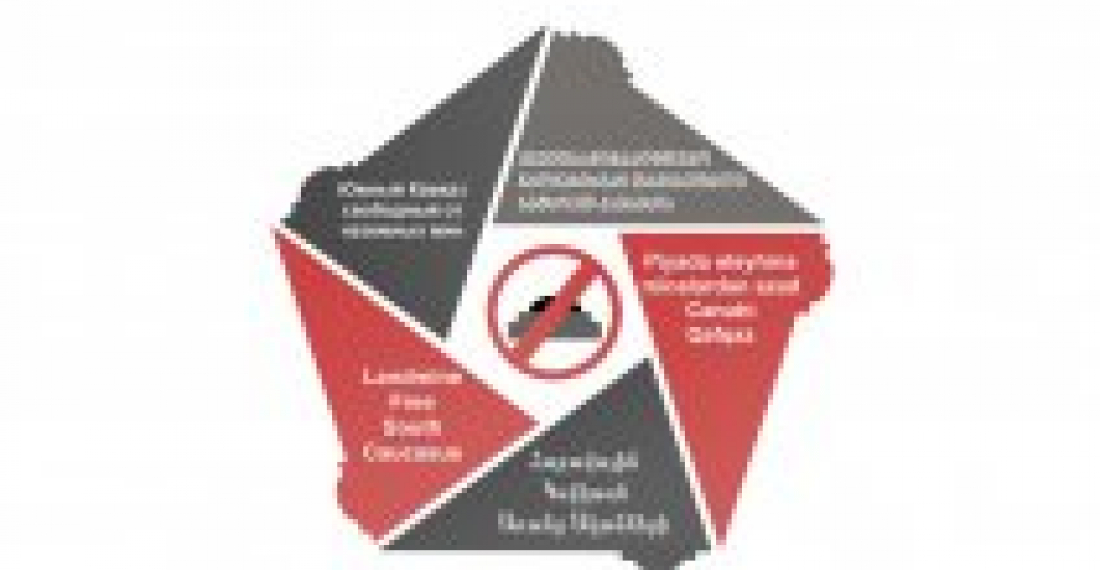Between the 4th and 10th of April 2019, the LANDMINE FREE SOUTH CAUCASUS campaign took place across the South Caucasus.
This was the first time that International Landmine Awareness day had been marked across the region with a common theme and messages. The main message – “A South Caucasus free of landmines and unexploded ordinance” – echoed across the region in Armenian, Azerbaijani, English, Georgian, and Russian. Across numerous events and through social media, the campaign encouraged governments, opinion formers and citizens to intensify their efforts to clean the South Caucasus of landmines and unexploded ordinance.
It took the message of the risks associated with landmines to children, young people and other vulnerable groups, especially those living in areas still infected. It highlighted the impact of landmine incidents on victims and their families. And it endeavoured to celebrate the good work that has been done, and is still being done, by hundreds of dedicated professionals throughout the region, who on a daily basis risk their lives to clear landmines and other unexploded ordinance in order to make the South Caucasus safe for current and future generations. The campaign was a collaborative work involving local and international NGOs, governments and civil society. Hundreds of opinion formers, and tens of thousands of citizens were reached through activities and through social media communication.
The response was overwhelmingly positive, with increased awareness of the issues around this problem. This compendium is a record of the LANDMINE FREE SOUTH CAUCASUS campaign 2019.
The LANDMINE FREE SOUTH CAUCASUS campaign was delivered by LINKS, in cooperation with the Armenian Centre for Humanitarian Demining and Expertise (Yerevan), the Europe-Georgia Institute (Tbilisi), and the Caucasus Policy Analysis Centre (Baku), working with a range of international and local partners. The campaign was supported and funded by the European Union.
You can download the compendium here






